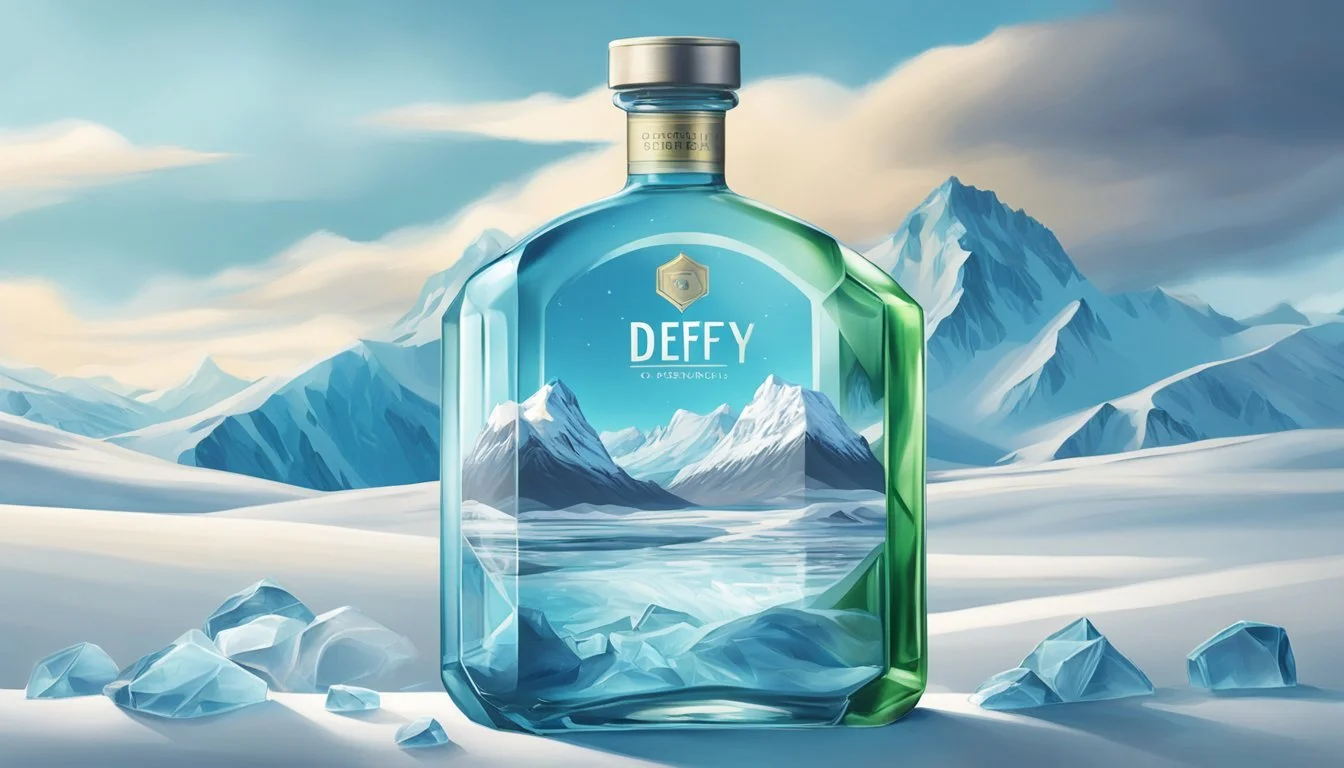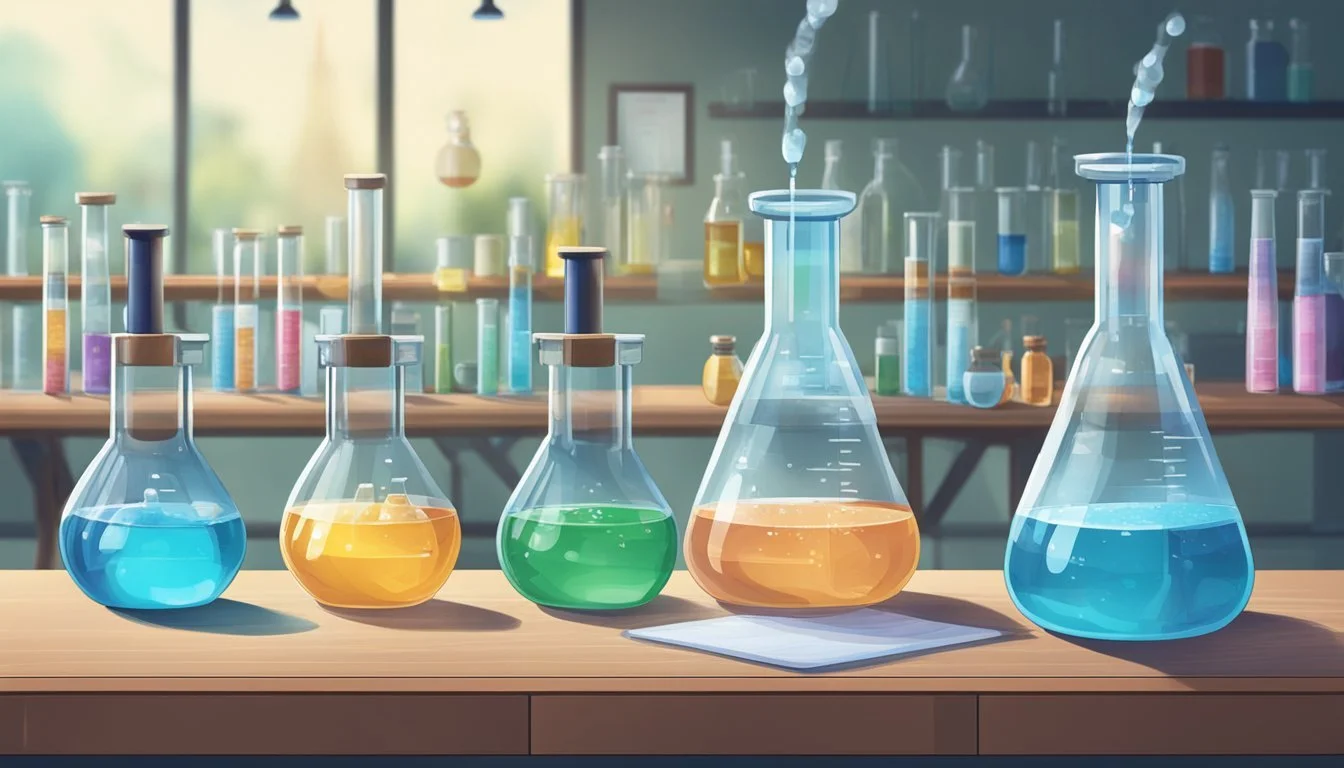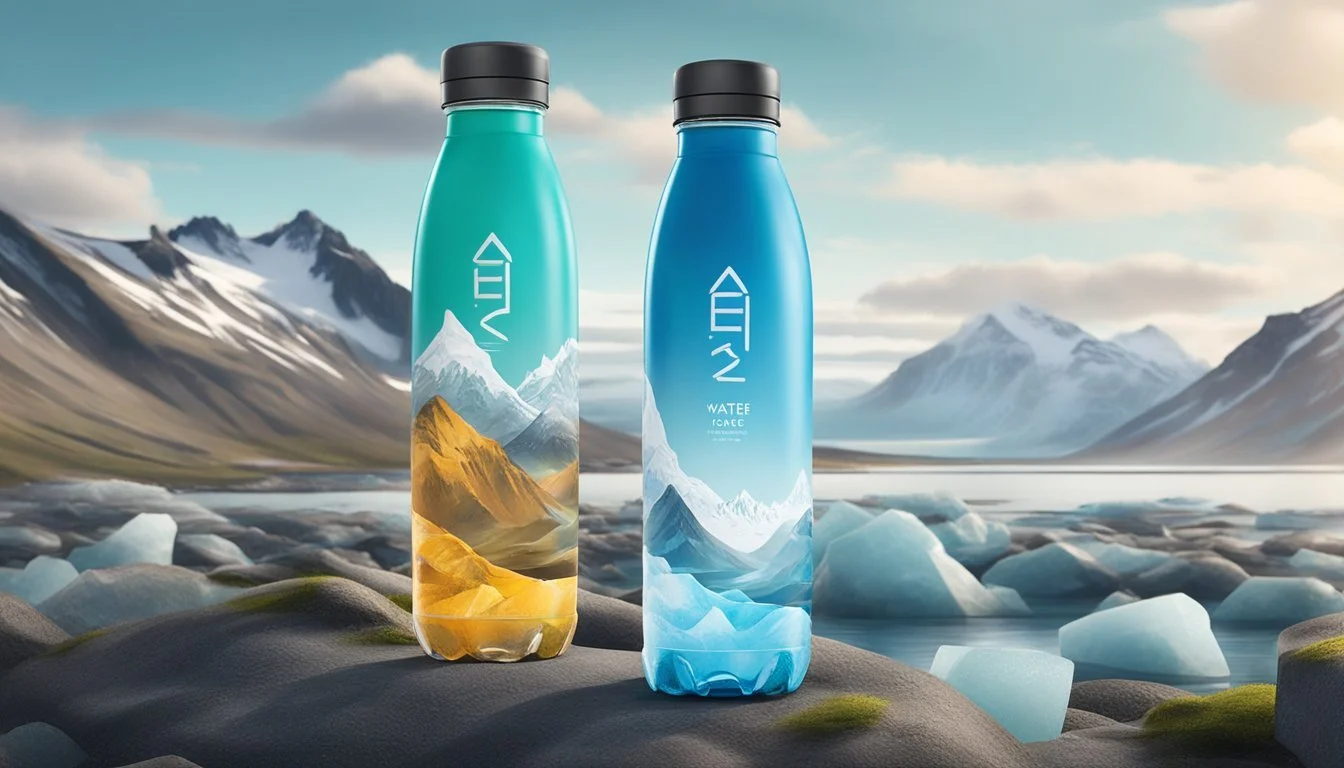Icelandic Glacial vs. Defy
Which Bottled Water is Better? A Comparison
Comparing bottled waters like Icelandic Glacial and Defy involves examining their unique qualities and the experience they offer consumers. Icelandic Glacial is often celebrated for its purity and balanced mineral content, sourced from the natural springs of Iceland. This brand markets itself as offering superior hydration due to its naturally occurring minerals.
Defy, on the other hand, positions itself as a wellness-focused waters brand, often enriched with additional electrolytes and other enhancements aimed at promoting better athletic performance and recovery. When deciding between Icelandic Glacial and Defy, it largely comes down to personal preference regarding the importance of natural purity versus enhanced hydration benefits.
Both brands have their loyal followings, thanks to their distinct characteristics and benefits. For consumers who prioritize natural sources and minimal processing, Icelandic Glacial might be the better choice. Those seeking additional functional benefits, such as improved athletic performance or better hydration, might lean toward Defy.
Overview of Icelandic Glacial and Defy Bottled Water
Icelandic Glacial and Defy offer unique qualities that set them apart in the bottled water market. Icelandic Glacial prides itself on its natural source and sustainability, while Defy presents itself as a performance-oriented choice.
Origin and Source
Icelandic Glacial: This brand sources its water from the Ölfus Spring, one of the world’s largest natural springs in Iceland. The spring, consistently replenished by rainfall and snowmelt, ensures a steady supply. Icelandic Glacial water filters through layers of lava rock, resulting in a naturally alkaline water with a pH of 8.4.
Defy: Defy bottled water is specifically designed with athletes in mind, often including added minerals and electrolytes to enhance performance and recovery. While the exact sourcing details of Defy aren't typically highlighted, the brand focuses on using purified water that undergoes rigorous processing to ensure quality and performance benefits.
Brand Ethos and Environmental Commitments
Icelandic Glacial: This brand emphasizes environmental sustainability and is the world’s first CarbonNeutral Certified bottled water. The company is committed to maintaining the Ölfus Spring's integrity and preserving its natural state. Efforts include using 100% recyclable packaging and reducing carbon emissions through efficient operations.
Defy: Defy's brand ethos revolves around performance and empowerment, particularly for athletic and active lifestyles. Although it is less focused on environmental aspects compared to Icelandic Glacial, Defy remains committed to providing high-quality, performance-driven hydration. The brand's connection with athletes and its role in sports highlight its dedication to enhancing physical performance.
In summary, Icelandic Glacial stands out for its sustainability and natural sourcing, while Defy is geared towards athletes seeking performance-enhancing hydration.
Chemical and Physical Properties
Key factors such as pH, alkalinity levels, mineral contents, and purity influence the quality of bottled water. These elements affect hydration efficiency and overall health benefits.
pH and Alkalinity Levels
Icelandic Glacial water boasts a naturally high alkaline pH level of 8.4, attributed to its filtration through volcanic lava rock. This alkalinity helps maintain the body's optimal pH balance.
Defy water, on the other hand, is also marketed as an alkaline water, although its exact pH level may vary slightly. Both types of water are believed to aid better hydration and balance bodily acids.
Mineral and Electrolyte Contents
Icelandic Glacial contains essential minerals such as calcium, magnesium, and potassium. These minerals contribute to its perceived health benefits and enhanced hydration.
Defy water also incorporates electrolytes, but its mineral profile may differ. Key electrolytes like magnesium and potassium play crucial roles in muscle function and overall hydration.
TDS and Purity Assessments
Total Dissolved Solids (TDS) measure the concentration of dissolved substances in water. Icelandic Glacial water has a low TDS level, indicating high purity with minimal contaminants.
Defy water's TDS level is specifically controlled to provide a clean and refreshing taste. Both brands focus on high purity to ensure consumer safety and satisfaction.
Health Benefits and Hydration Efficiency
Icelandic Glacial and Defy bottled waters present unique profiles that impact health and hydration. This section will explore their role in maintaining hydration and the body's pH balance, as well as compare the sources and quality of each water brand.
Hydration and Body pH Balance
Icelandic Glacial water is known for its high alkaline pH, typically above 8.0, which can help maintain the body's optimal pH balance. This alkalinity may aid in reducing acidity in the body and improve hydration levels. Additionally, the water naturally contains beneficial minerals like calcium and magnesium, which support overall health and wellness.
Defy water is enhanced with electrolytes, including potassium, which supports hydration and muscle function. The inclusion of these electrolytes can be particularly beneficial for athletes or individuals engaging in strenuous activities. Both waters excel in providing hydration, yet their distinct mineral compositions and pH levels might influence individual preferences and needs.
Comparative Analysis of Water Sources
Icelandic Glacial sources its water from Iceland's Ölfus Spring, an underground aquifer protected by impermeable lava rock. This natural filtration process ensures exceptional purity and a high mineral content. The pristine source contributes to its premium positioning in the market.
Defy water is sourced from the United States and undergoes a purification process before the addition of electrolytes. The process includes several stages of filtration to ensure cleanliness and quality. While Defy may not have the natural origin of Icelandic Glacial, its engineered composition is designed to optimize hydration and electrolyte balance.
Both brands deliver high-quality drinking water, but the choice may depend on whether one values natural mineral content or the added benefits of electrolytes.
Packaging and Environmental Impact
Icelandic Glacial and Defy employ distinct packaging materials and sustainability practices. This impacts their environmental footprint, recycling efforts, and consumer health safety.
Recycling Initiatives and Sustainability
Icelandic Glacial uses PET bottles, which are 100% recyclable and BPA-free. They emphasize their carbon-neutral production, relying entirely on geothermal and hydroelectric power. Their facility is one of the world's greenest.
Defy, in contrast, focuses on using rPET (recycled PET) for its bottles. This reduces waste and supports the circular economy. Defy also invests in recycling programs to minimize its environmental impact and encourages consumers to recycle.
Both brands strive for sustainability but adopt different approaches. Icelandic Glacial prioritizes a carbon-neutral footprint, while Defy emphasizes using recycled materials and promoting recycling.
BPA-Free Containers and Health Safety
Health safety is a critical aspect, especially concerning BPA (Bisphenol-A). Icelandic Glacial bottles are made from BPA-free PET plastic. This ensures there are no harmful chemicals leaching into the water, maintaining the purity and safety of the product.
Defy also ensures their packaging is BPA-free, using rPET bottles. This not only ensures safety from harmful chemicals but also supports sustainability through recycled materials.
Both companies are committed to providing safe, chemical-free products, focusing on BPA-free containers. This is essential for maintaining consumer trust and delivering a high-quality, safe drinking experience.
Taste Profile and Consumer Preferences
Icelandic Glacial and Defy offer distinct experiences to consumers, influenced by their mineral content and origins. Consumer preferences often hinge on these factors, shaping brand perception and market trends.
Flavor Influences of Minerals and Sources
Icelandic Glacial originates from the Olfusa spring in Iceland. It is filtered through volcanic rock, which imparts a unique mineral profile. This process gives the water a crisp, clean taste with a slightly alkaline pH.
Defy utilizes high-quality spring sources known for their balanced mineral content. It is often praised for its smooth, neutral taste. Defy’s mineralization, including silica, contributes to a subtle, slightly sweet flavor, distinguishing it from other brands.
Factors like mineral content and source purity directly influence taste. Consumers sensitive to these nuances often prefer Icelandic Glacial for its crisp mineral notes or Defy for its balanced, subtle taste.
Market Trends and Brand Perceptions
Icelandic Glacial positions itself as a premium brand, often perceived as a luxury product. Its marketing emphasizes purity and environmental sustainability, attracting eco-conscious consumers.
Defy, though less luxurious in branding, focuses on health benefits and value. It appeals to consumers looking for high-quality, natural water without the premium price tag. The brand leverages its reputation for quality to build a loyal customer base.
Consumer preferences in the bottled water market reflect broader trends. Increasing demand for pure, natural water influences choices. Icelandic Glacial’s reputation for pristine water and Defy’s health-centric appeal shape their respective market standings.
Certifications and Regulations Compliance
Regulations from agencies such as the FDA and EPA ensure the safety and quality of bottled water. Both Icelandic Glacial and Defy adhere to strict guidelines to maintain consumer trust and product integrity.
Food and Drug Administration (FDA) Standards
The FDA regulates bottled water under the Federal Food, Drug, and Cosmetic Act. Icelandic Glacial and Defy must both meet stringent FDA regulations regarding permissible levels of contaminants and labeling requirements.
Each brand must provide a water quality report that verifies its water is free from harmful substances such as PFAS chemicals. Compliance with these regulations ensures that bottled water is safe for consumption.
Environmental Protection Agency (EPA) Guidelines
The EPA sets standards for tap water, but bottled water must adhere to similar guidelines through FDA oversight. Both Icelandic Glacial and Defy must ensure their production processes are environmentally responsible.
Icelandic Glacial boasts a carbonNeutral certification, reflecting its commitment to reducing carbon emissions. Adhering to environmental guidelines ensures that the production and bottling processes minimize environmental impact and maintain high-quality standards.
Market Presence and Availability
Both Icelandic Glacial and Defy have unique distribution strategies that impact their market presence and accessibility, including availability in major retail outlets and online platforms.
Distribution Channels and Retail Outlets
Icelandic Glacial is available in various retail giants including Walmart and Sam's Club, often placed in the premium bottled water sections.
Conversely, Defy focuses heavily on specialty stores and health-focused retailers. Its unique branding caters to a niche market, emphasizing health benefits and higher performance.
For online purchases, Amazon features both brands, offering the convenience of home delivery. This blend of online and in-store availability ensures broad reach for consumers seeking either brand.
Consumer Accessibility and Price Points
Icelandic Glacial is typically positioned as a higher-end product. Prices per bottle usually fall between $2.50 and $4.00, justified by its branding and purity claims.
Defy, known for its specialized health focus, also commands a premium price, sometimes exceeding Icelandic Glacial. It's often found in the $3.00 to $5.00 range per bottle.
Sam's Club and Walmart offer multi-packs and bulk options for Icelandic Glacial, making it more accessible for regular consumption. Defy's targeted distribution means it is less frequently found in bulk packaging but maintains a strong presence in health food stores and specialty outlets.
More About Icelandic Glacial
Acqua Panna vs Icelandic Glacial: Which Bottled Water is Better?
Aquafina vs Icelandic Glacial: Which Bottled Water is Better?
Arrowhead vs Icelandic Glacial: Which Bottled Water is Better?
Boxed Water vs Icelandic Glacial: Which Bottled Water is Better?
Core Hydration vs Icelandic Glacial: Which Bottled Water is Better?
Deer Park vs Icelandic Glacial: Which Bottled Water is Better?
Essentia vs Icelandic Glacial: Which Bottled Water is Better?
Eternal vs Icelandic Glacial: Which Bottled Water is Better?
Ice Mountain vs Icelandic Glacial: Which Bottled Water is Better?
Icelandic Glacial vs 1907water: Which Bottled Water is Better?
Icelandic Glacial vs 7-Select: Which Bottled Water is Better?
Icelandic Glacial vs Alkaline88: Which Bottled Water is Better?
Icelandic Glacial vs Antipodes: Which Bottled Water is Better?
Icelandic Glacial vs Aqua Carpatica: Which Bottled Water is Better?
Icelandic Glacial vs Big Chill: Which Bottled Water is Better?
Icelandic Glacial vs Big Win: Which Bottled Water is Better?
Icelandic Glacial vs BodyArmor: Which Bottled Water is Better?
Icelandic Glacial vs Cascade Mountain: Which Bottled Water is Better?
Icelandic Glacial vs Castle Rock: Which Bottled Water is Better?
Icelandic Glacial vs CBD Living: Which Bottled Water is Better?
Icelandic Glacial vs Crystal Geyser: Which Bottled Water is Better?
Icelandic Glacial vs Crystal Lake: Which Bottled Water is Better?
Icelandic Glacial vs Erewhon: Which Bottled Water is Better?
Icelandic Glacial vs Essence pH10: Which Bottled Water is Better?
Icelandic Glacial vs Hawaii Volcanic: Which Bottled Water is Better?
Icelandic Glacial vs Hawaiian Springs: Which Bottled Water is Better?
Icelandic Glacial vs Just Water: Which Bottled Water is Better?
Icelandic Glacial vs Kirkland Signature: Which Bottled Water is Better?
Icelandic Glacial vs LIFEWTR: Which Bottled Water is Better?
Icelandic Glacial vs Liquid Death: Which Bottled Water is Better?
Icelandic Glacial vs Mananalu: Which Bottled Water is Better?
Icelandic Glacial vs Mountain Valley Spring Water: Which Bottled Water is Better?
Icelandic Glacial vs Nestle Pure Life: Which Bottled Water is Better?
Icelandic Glacial vs Open Water: Which Bottled Water is Better?
Icelandic Glacial vs Perrier: Which Bottled Water is Better?
Icelandic Glacial vs Poland Spring: Which Bottled Water is Better?
Icelandic Glacial vs Proud Source: Which Bottled Water is Better?
Icelandic Glacial vs Pure Life: Which Bottled Water is Better?
Icelandic Glacial vs Purely Sedona: Which Bottled Water is Better?
Icelandic Glacial vs Refreshe: Which Bottled Water is Better?
Icelandic Glacial vs Richard's Rainwater: Which Bottled Water is Better?
Icelandic Glacial vs San Pellegrino: Which Bottled Water is Better?
Icelandic Glacial vs Simple Truth: Which Bottled Water is Better?
Icelandic Glacial vs Smartwater: Which Bottled Water is Better?
Icelandic Glacial vs Solan de Cabras: Which Bottled Water is Better?
Icelandic Glacial vs Starkey: Which Bottled Water is Better?
Icelandic Glacial vs Talking Rain AQA: Which Bottled Water is Better?
Icelandic Glacial vs The Well: Which Bottled Water is Better?
Icelandic Glacial vs Topo Chico: Which Bottled Water is Better?
Icelandic Glacial vs Tru Alka: Which Bottled Water is Better?
Icelandic Glacial vs Waiakea: Which Bottled Water is Better?
Icelandic Glacial vs Weird Water: Which Bottled Water is Better?
Icelandic Glacial vs Whole Foods 365: Which Bottled Water is Better?
Icelandic Glacial vs Whole Foods Italian Still Mineral water: Which Bottled Water is Better?
Icelandic Glacial vs Zephyrhills: Which Bottled Water is Better?
Icelandic Glacial vs HFactor: Which Bottled Water is Better?






